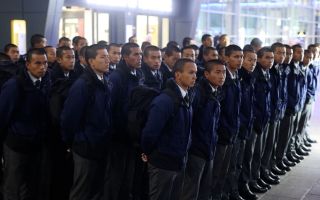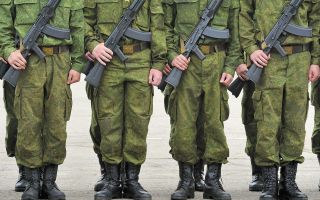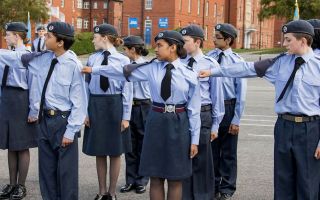Commonwealth War Graves Commission Staff Told To Return To UK Or Face Pay Cuts
Thirty people who work for the Commonwealth War Graves Commission (CWGC) across France and Belgium have been told they must return to the UK or face significant pay cuts.
The staff look after cemeteries where soldiers killed in the First and Second World Wars were laid to rest in France and Belgium, including the Somme, Ypres and Passchendaele, Normandy and Dunkirk.
But last month, 30 of these staff were notified by email they would have to choose between a pay cut or returning to the UK and were given three weeks to decide.
Rachel Hopkins, Labour MP for Luton South, told Forces News the staff at the CWGC were "at a loss" and "tearful about how they could be treated like this".
"They love their work, they want to carry on with it, but… some of them were saying that they just couldn't afford to stay living in the country if they fundamentally see a cut of their salary by a half," she said.
The CWGC said the staff are under UK-based contracts and, due to Brexit, must be moved onto local contracts to bring their terms and conditions in line with the laws of their host countries.
Speaking at Westminster Hall, Ms Hopkins urged the Government to ensure staff are treated fairly and said the decision was “made with the head but, sadly, not with the heart”.
The Labour MP also said she hoped defence minister Johnny Mercer would agree that the timing of the announcement is "shameful" and the excuse of the encroaching EU transition period deadline is "thoroughly inadequate".
"The vote to leave was over four years ago," she said.
"Implementing a plan to support staff should have been a priority for the commission."
Watch: What is the Commonwealth War Graves Commission?
In response, Mr Mercer said the matter was complicated by "certain unique advantages" the staff enjoyed, meaning they do not pay income tax in the UK or their host nation.
Additionally, he said the staff receive an allowance as they may have to move anywhere in the world as part of their duties.
"Inevitably, once they become permanently located these arrangements would be brought into line with their counterparts," he said.
"They would then have to pay local tax and lose their allowances."
The defence minister also added that £30,000 and removal costs would be paid to those who decide to repatriate to the UK and up to £10,000 would be paid to staff choosing to stay.
But military historian Jeremy Banning told Forces News the reason this "feels like such a massive kick in the teeth" is because the staff are being treated like "numbers on a spreadsheet".
"They’ve given their heart, their soul, their lives, really, to the commission," he said.
"Most of them... [have] worked for 30 years on average and yet they’re just being treated as if they’re cattle, in a way," he added.
The CWGC said it acknowledged the timetable for negotiation has been tight, and that a team has been created to support the staff affected.








